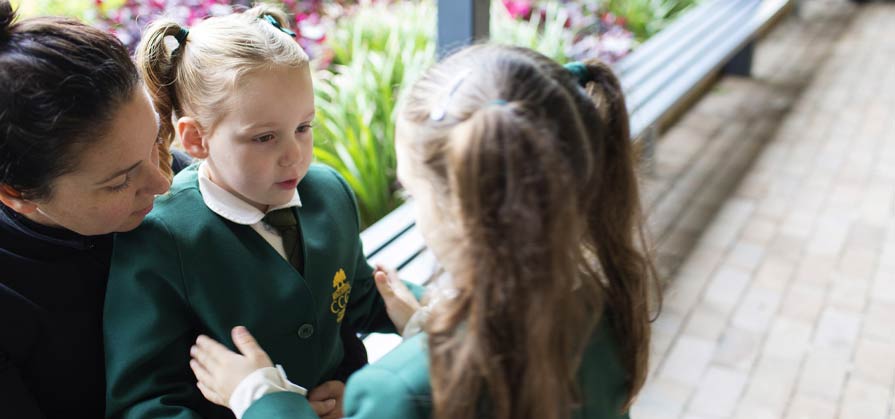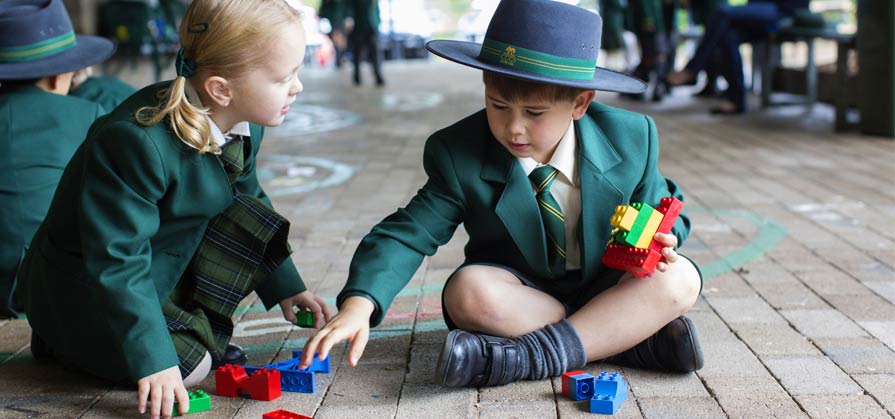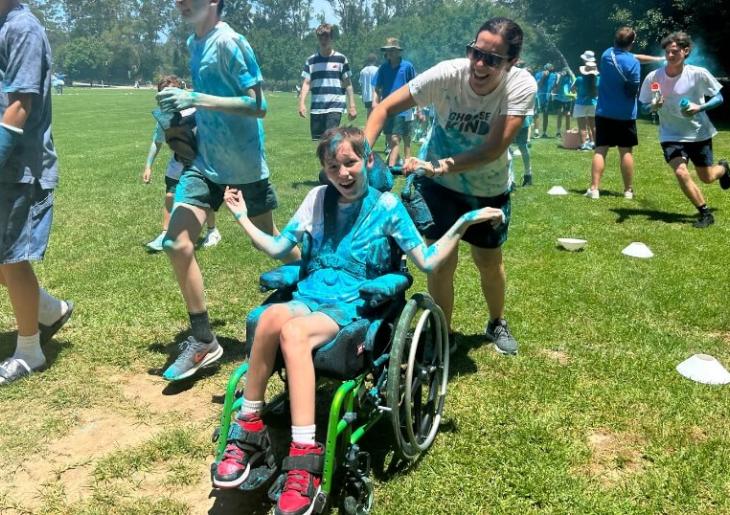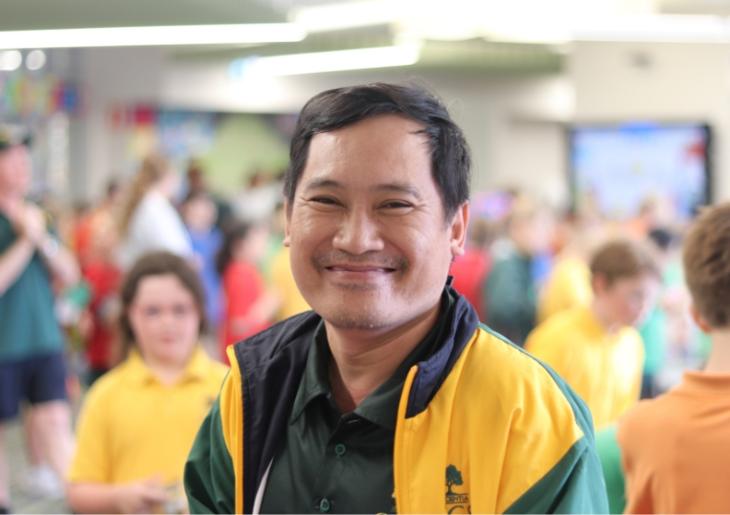Starting school: A family adjustment
As a parent you will likely have mixed emotions about your child starting school, whether this is your first, middle, last or only child. Starting school can be a happy and exciting time for children and families but it can also be confronting and cause feelings of anxiety.
When a child starts school, there is much they need to learn and get used to - new rules, new routines and new expectations in an unfamiliar setting with unfamiliar children. For parents and caregivers there are social and emotional changes which may take you by surprise or have you lying awake for months lamenting the ‘big day’.

Preparing the whole family for starting school
Many families will have concerns when their child starts school. Some may wonder if their child is ready. Others may be worried about the practicalities - how are they going to get them to school and arrive at work on time? Many parents can feel anxious that somebody new will be looking after their child.
Each family transitions to school differently so any new feelings you may be experiencing are completely normal.
Addressing concerns
All children in NSW must start school by their sixth birthday. If your child is of school age and you’re concerned about how they will cope, talk with the school to get some strategies to support the transition. Schools welcome open dialogue from future families.
Be sure to attend the school’s ‘Transition to School Program.’ This is a time to see if it ‘feels’ right. The teachers will also be looking closely and will discuss any areas of concern.
Younger children may have the option of one more year of preschool. Have a chat with your pre-school teacher, and see what they think.
Preparing your child for a smooth transition
There are a few practical things families can do before school starts.
Look for strengths
School requires skills in 3 main areas:
- Pre-learning skills: listening, focusing, following instructions, hand-eye coordination and interest in learning
- Independence skills: self-help skills (i.e. going to the toilet), the care of belongings and understanding school and social expectations
- Social/emotional skills: making friends, taking turns, sharing, and expressing emotions.
Before your child starts school, help them practice and develop their strengths in the above areas. Children will develop these skills at different rates so resist placing pressure on them to be perfect before they start.
Once they do start, recognise and celebrate the things they are doing well and are naturally good at.

Positive reassurance
Children look to adults for reassurance. It’s important they see you as positive and confident about this experience. When you appear relaxed about the transition is tells children they are safe. Keep the verbal and non-verbal messages positive and your child should feel eager and curious about starting school.
When the big day comes, actions speak louder than words. Telling them “Have a great day!” and bursting into tears is not a message of confidence and will contradict the positive message you have been trying to instil.
Once school starts
Not settling?
Give it time and keep it simple. It can take children all of Term 1 to understand what to ‘do’ at school. Whilst they are using so much energy working this out, they are getting tired. They won’t say ‘Mum, I feel like an early night’ but they will let you know in other ways – often tears, tantrums or both! Adapting to change takes time and some people do this more easily than others. Consider implementing some simple changes at home i.e.: limiting after school activities or eating dinner earlier.
If things are not settling down, speak to your child’s teacher first. They may suggest a few ideas that can make a big difference – after all they have probably seen it all before. You could also speak to the Learning Support Teacher or the School Counsellor for further strategies. Most school Principals and Deputy Principals also welcome communication with new parents and are a wealth of knowledge.
Celebrate!
Remember, this is a big change for everyone. Don’t worry if you don’t feel super confident, ‘Fake it until you make it!’ Celebrate what a great job you have done getting this small person ready for school and enjoy the moment – it really does pass too quickly!
About the Authors:
Tracy Mitchell is one of two school psychologist at Central Coast Grammar School (CCGS). She provides support for students aged 5 years to 18 years, their families and teacher with issues related to learning, social/emotional difficulties and general mental health and wellbeing. Tracy currently works in the Junior School and Senior College.
Maree Gross is a Kindergarten teacher at CCGS and the Kindergarten Year Leader. She is responsible for the smooth running of the Kindergarten across the grade. Maree has worked in Primary education for 35 years, 19 of which have been on Kindergarten at CCGS. She provides support for students, their families and the teachers with issues related to academic progress and social/emotional development.




